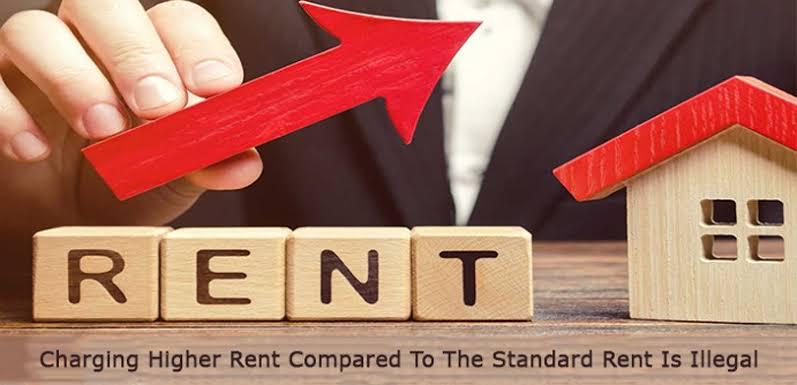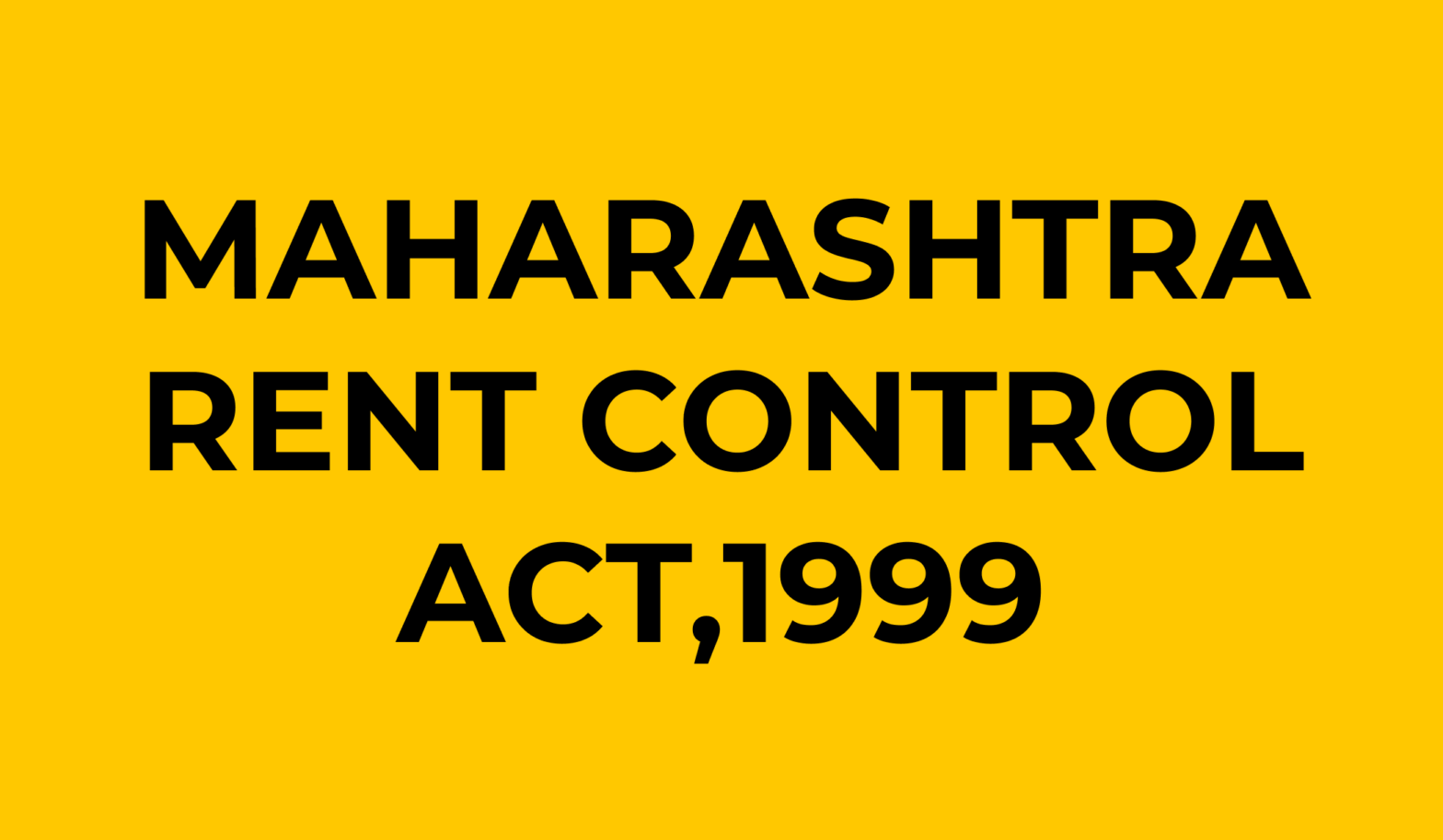INTRODUCTION
To live in, Mumbai – The City Of Dreams, is a fantasy for many, but owing to the high rents and escalated property prices people face a lot of problems. Hence, to solve people’s problems the Maharashtra Government passed the Maharashtra Rent Control Bill in 1999 and this bill came into force on 31st March 2000. The first law related to renting in Mumbai was passed in 1915, then in 1939 and later Bombay Rents, Hotel, and Lodging House Rates Control Act, 1947 replaced these two. And now, there is only one Act, the Maharashtra Rent Control Act 1999. The act does not apply to any premises which belong to the government or local authority, bank or PSU (public sector undertaking) or state or centre corporation.
Purpose of Maharashtra Rent Control Act,1999
The Act aims to ensure that neither tenants nor landlords face issues in receiving the right amount for their property. The act holds the landlord responsible for the maintenance and modification of residential or commercial property.

RIGHTS AND DUTIES OF TENANTS AND LANDLORDS UNDER THE MAHARASHTRA RENT CONTROL ACT, 1999
SUPPLY OF ESSENTIAL AMENITIES:
Section 29 of the act prohibits the landlord from cutting off vital services like water supply, electricity, elevator and sanitation facilities. If a landlord does so the tenant can move to the court and if he is proved right, the court will directly restore the facilities.
EVICTION OF TENANT:
Section 16 of the act provides, that if a tenant is found guilty of nuisance or causes annoyance to neighbours or uses the property for any illegal purpose or does any sort of permanent construction in the property without prior permission, the landlord can recover the property from him.
RENT RECEIPT
It is the duty of every landlord to provide a rent receipt to the tenants on receiving the monthly rent.
SERVICING AND REPAIRS
The landlord is responsible for keeping the property in good condition. If a landlord does not repair the property, a 15-day notice is served by the tenant. The tenant can deduct the repair amount from the monthly rent provided the repair amount should not be more than one-fourth of the yearly rent.
INSPECTION OF PROPERTY
A landlord can inspect the property anytime, but, a prior notice should be given to the tenant.
USAGE OF PROPERTY
A residential property cannot be used for a commercial purpose either by a tenant or by a landlord.
RENT
It is the landlord’s right to decide the property’s rent.
- Under the act, the landlord can increase the rent to a rent of 4% per annum.
- For improvements and modifications, the rent can be increased by 15%.
- If structural repairs are carried out under the Maharashtra Housing and Area Development Authority (MHADA) Act, the rent can be increased by 25% per annum.
- The landlord can increase the rent if there is a hike in the taxes in the area.
REGISTRATION OF RENT AGREEMENT
Landlords and tenants must register the rent agreement. A written rent agreement should be registered as per the Registration Act, of 1908 and it is the responsibility of the landlord to get the rent agreement registered.
PENALTIES UNDER THE MAHARASHTRA RENT CONTROL ACT, 1999
| Offence | Penalty |
| The landlord charges higher rent | A fine of ₹1000 or 3 months imprisonment or both |
| Landlord cuts off supply of essential services | A fine of ₹100 per day, if the penalty is not paid the court may levy a fine of ₹1000 or 3 months imprisonment or both |
| The rent agreement is not registered | Imprisonment of up to 3 months, a fine of ₹5000, or both. |
| Usage of Residential property for commercial purposes | Imprisonment of up to 6 months or ₹10,000 fine or both is faced by a defaulter. |
| Rent Receipt not provided to tenant | FIne of ₹100 per day. |
EVICTION RULES UNDER MAHARASHTRA RENT CONTROL ACT, 1999
As per the act, the landlord can take back possession of the property under certain circumstances. It cannot be done if the tenant pays off the rent on time or is willing to do so. A rule mentioned under Section 106 of the Transfer of Property Act 1882 states that a court case can be filed only if notice of 90 days has expired and the notice period starts 15 days after the landlord has given the information.
The landlord can evict the tenant on the following grounds :
- The tenant constructs any permanent structure in the premises without the landlord’s permission.
- A tenant has given the notice to leave the property, and the landlord has offered it for sale or rented it to any other tenant.
- The tenant sublets the apartment unlawfully.
- The tenant uses the property for illegal purposes.
- the tenant or any person related to the tenant is found guilty of nuisance and causes annoyance to the neighbours.
CONCLUSION
In conclusion, The Act aims to balance the interests of landlords and tenants by prescribing rules relating to rent increases, eviction, and maintenance of premises. It also introduced the concept of a ‘standard rent’ for properties, ensuring fairness in rental agreements across the state of Maharashtra.

More blogs from RentOk
Best PG manager app, Best rent collection app in India, Rent agreement format, Top 5 PG in Gurgaon, free rent agreement, online police verification, Complete Rent Agreement Format for 2023, tenant management software, Best PG manager app, Top 5 property management app, Haryana rent control act, Delhi rent control act



